Просмотр содержимого документа
«A questionnaire on the topic "Inclusive education" and a short review»
https://docs.google.com/forms/d/e/1FAIpQLSd10Q0G9DMxIGx8XD5WTGigRns66OZhUJPxSKTmTsnxa9Rg1A/viewform?usp=sf_link
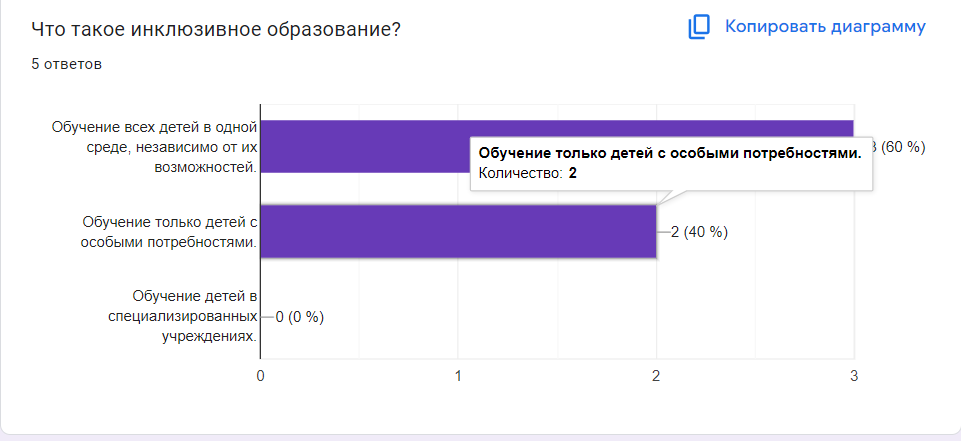
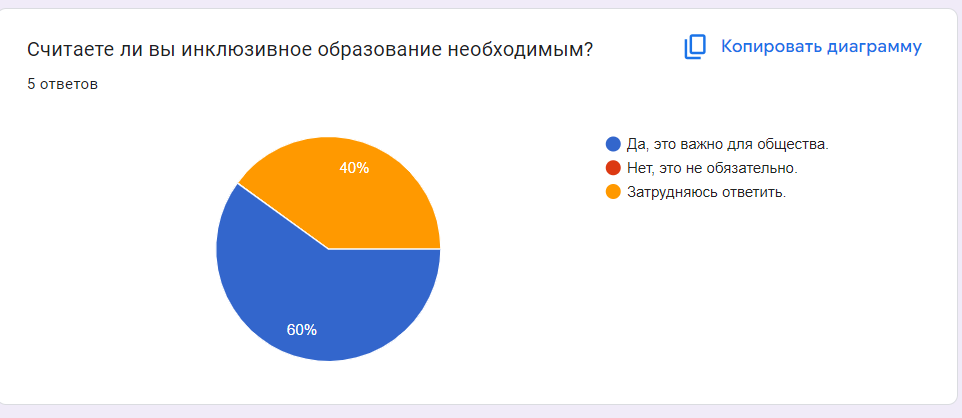
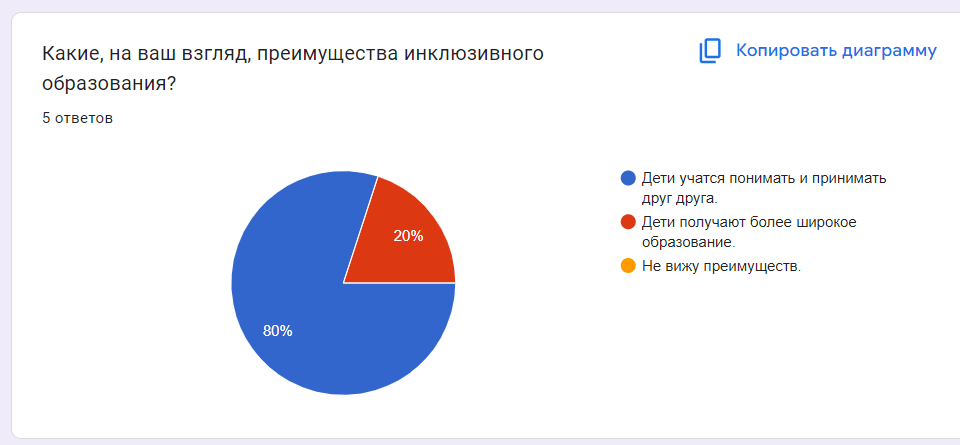
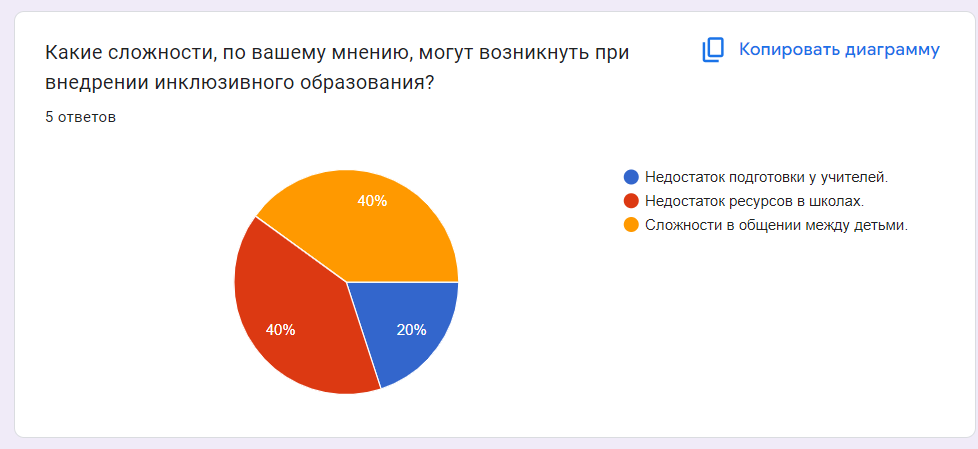
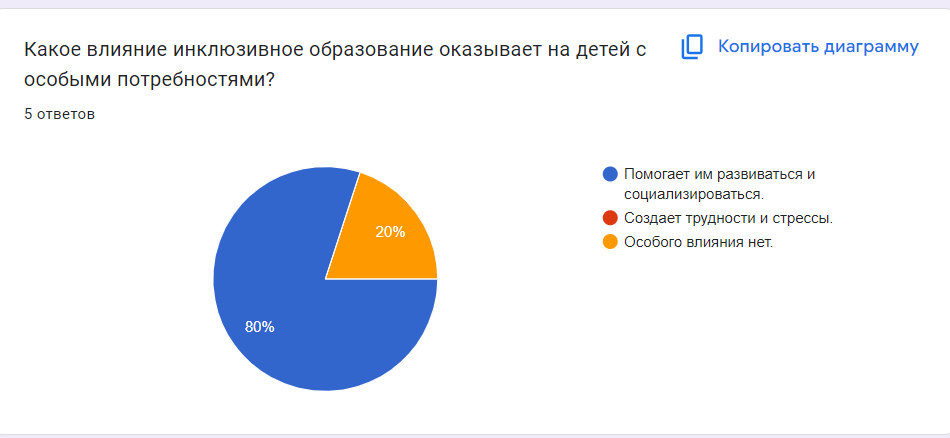
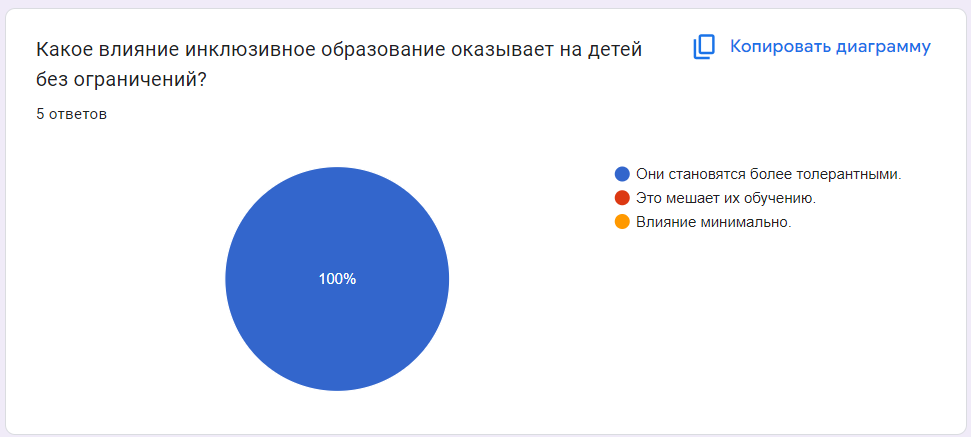
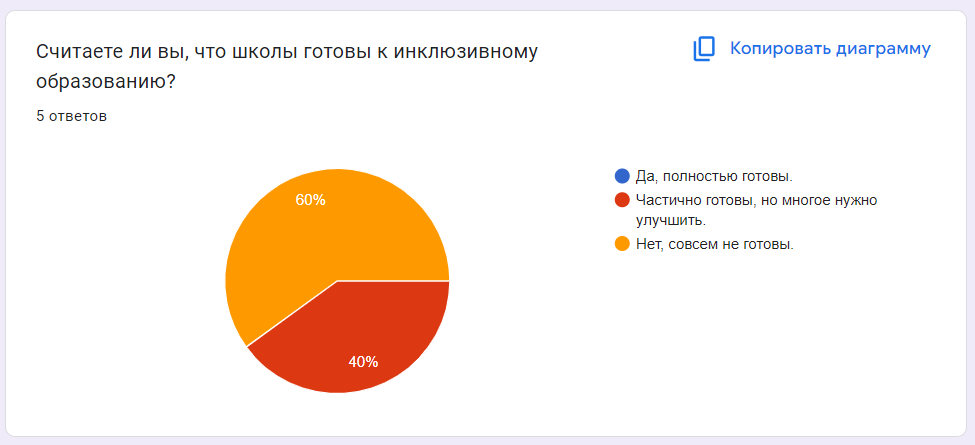
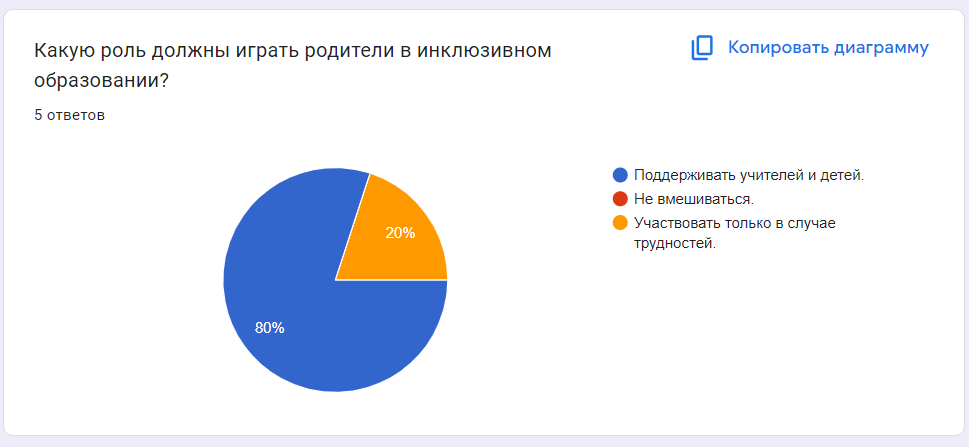
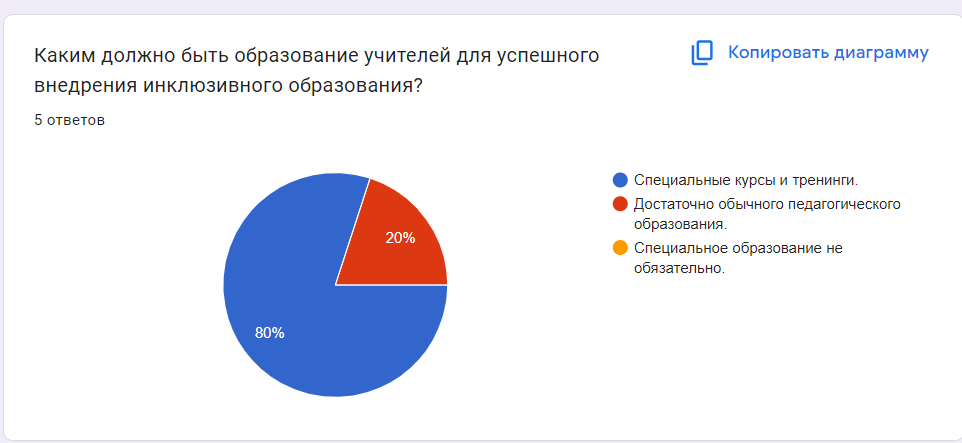
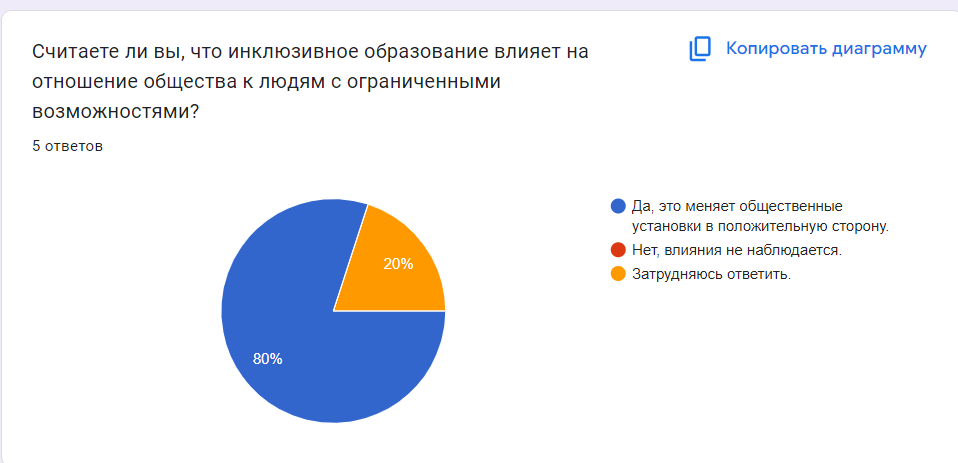
1. Most respondents (60%) believe that inclusive education involves teaching only children with special needs. However, a significant number (40%) support the idea of teaching all children in the same environment, regardless of their abilities.
2. The majority (60%) do not see inclusive education as necessary, while 40% agree that it is important for society.
3. A large percentage (80%) believe that inclusive education helps children understand and accept each other, while 20% do not see any advantages.
4. 60% of respondents think schools are only partially ready for inclusive education and need improvements, while 40% believe schools are fully prepared.
5.Respondents pointed out that teacher preparation and lack of resources (both 40%) could pose challenges, alongside communication difficulties between children (20%).
6. 80% agree that inclusive education helps children with special needs develop and socialize, while 20% feel it creates stress and difficulties.
7.80% believe inclusive education has no noticeable effect on changing societal attitudes toward people with disabilities, while 20% think it has a positive influence.
8.Most respondents (80%) think parents should support both teachers and children in inclusive education, while 20% believe parents should only intervene in case of difficulties.
9. 80% believe that specialized courses and training are necessary for teachers to effectively implement inclusive education, while 20% think general pedagogical training is sufficient.
10. All respondents (100%) agree that inclusive education helps children without disabilities become more tolerant.
The survey reveals mixed opinions on inclusive education, with a significant portion acknowledging its benefits for societal development and individual growth, particularly in terms of tolerance. However, there is a prevailing concern about the readiness of schools, the need for proper teacher training, and the availability of resources to fully implement inclusive education.


























